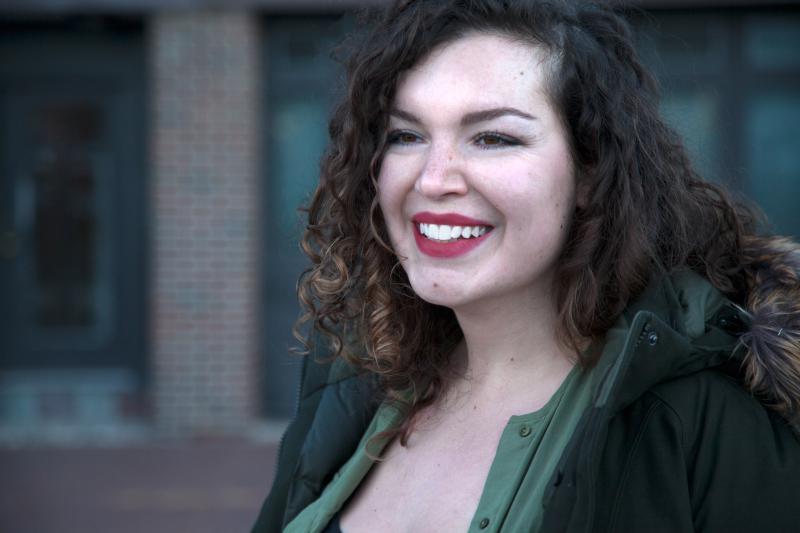 Ulya Aviral is a New England filmmaker who lives in Cambridge and teaches at CCRI and RISD. She was born in 1991 and grew up in Turkey seeking out theater, film and art in general amid chaos, violence and war. At 17, she moved to the US by herself and settled in the suburbs of Chicago where she soaked up whatever local theater she could.
Ulya Aviral is a New England filmmaker who lives in Cambridge and teaches at CCRI and RISD. She was born in 1991 and grew up in Turkey seeking out theater, film and art in general amid chaos, violence and war. At 17, she moved to the US by herself and settled in the suburbs of Chicago where she soaked up whatever local theater she could.
When she went to college, she began to study sociology but was attracted to studying film through a theoretical lens because it provides a window into people’s cultures. Aviral received a master’s degree in film from Emerson and now creates short films, usually between 10 and 15 minutes. Her Film, My Nature, which was a finalist at the Boston MFA’s Turkish Film Festival, will show on February 24 at CCRI and March 24 at the Emerson Film Festival.
In her filmmaking, Aviral combines her passion with the knowledge that comes from her peers’ and family’s experience living in a turbulent and violent situation. She says of Ankara, Turkey’s capital where she lived, “People have so many different beliefs, so many different languages that they speak and so many different political views. This causes a lot of wars and battles in the region.”
Aviral continued to reflect, “There have been terrorist attacks, bombs downtown where my parents work. One was by ISIS in my home of Ankara. It was awful for a while. It is exhausting an entire society, exhausting masses of people. Causing a lot of emotional imbalances in people as they get tired of this.”
This incendiary reality informs her reactionary approach to film, which she calls “Magical Realism.” She defines Magical Realism as “bending the boundary between fantasy and the real – incorporating a lot of fantastical or dream elements. It mashes the psychological state and emotions and dreams as visions that one may have onto the real world.”
For My Nature, which explores communication and the different avenues people take when finding their voices, she created a language. To do so, she drew from her language studies, and pieced together parts of Farsi, Arabic, Turkish and other regional languages. She said this new language has “90 characters, which have primal sounds. The grammar structure is simple and it has its own vocabulary.” Her intent was for audiences from different cultures to read and learn this new language so that people from on all sides of conflict could relate to it and use it to breach obstacles. Ulya said, “People on all sides suffer the same traumas and frustrations and pain.” Aviral’s hope is to have people see this truth through any conflict they feel with each other and connect despite it.